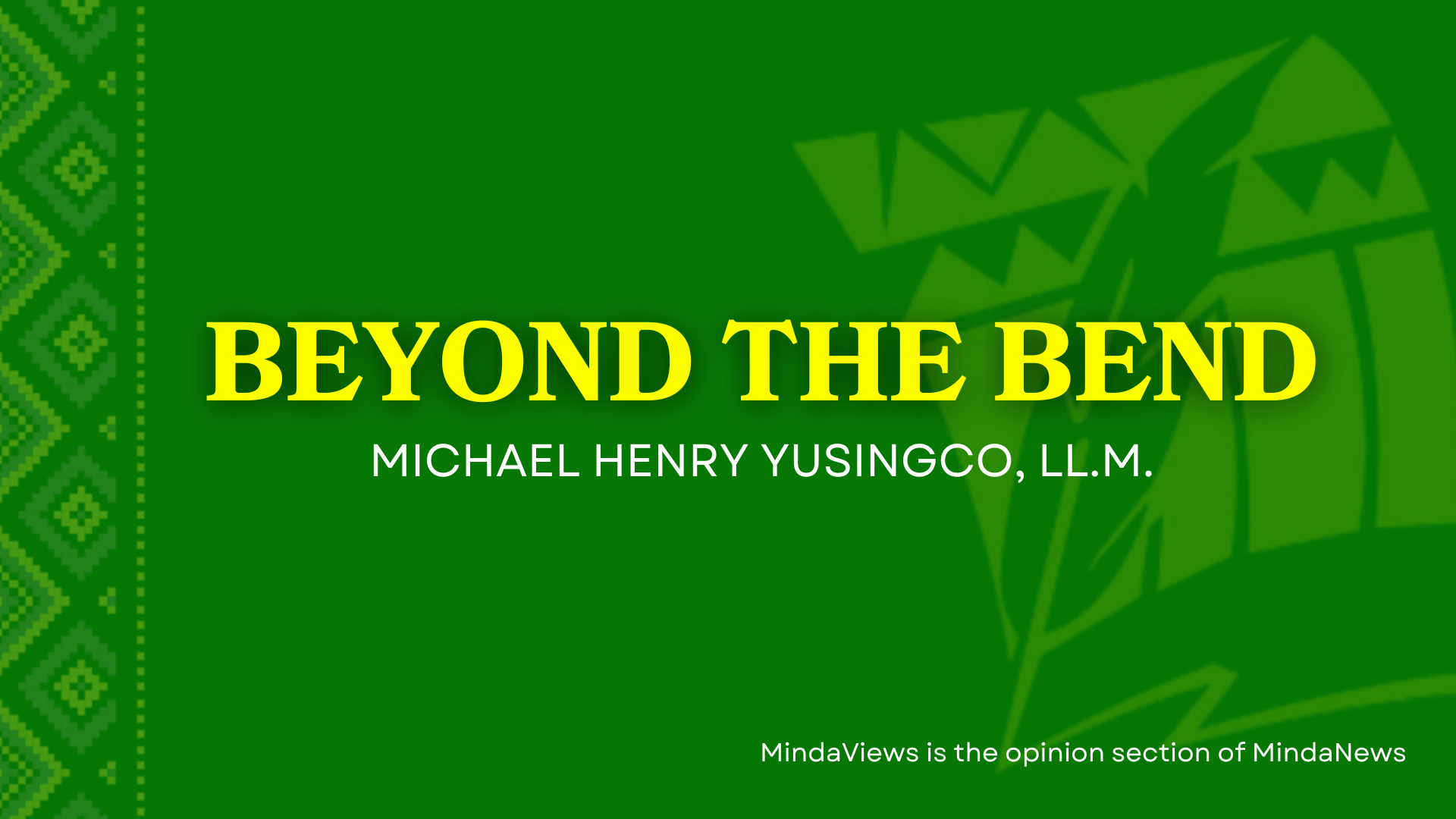
(MindaNews / 17 June) — Social media was abuzz with criticisms of President Ferdinand “Bongbong” Marcos’ Memorandum Circular No. 52 requiring “all national government agencies and instrumentalities, including GOCCs and educational institutions, such as SUCs,…to integrate the recital of the Bagong Pilipinas Hymn and Pledge in the conduct of weekly flag ceremonies.”
Local governments are merely “encouraged” to do this in their own flag ceremonies. As if local executives can muster the courage to ignore this “encouragement” by President Marcos this close to the midterm elections. Dynastic politicians will do anything and everything they can to secure the support of Malacañang.
This move certainly conjures up nightmares of the Martial Law years under President Marcos Sr. In fact, it can be argued that forcing SUCs to comply with this directive might violate academic freedom. But broadly speaking, the issuance of this memorandum circular, regardless of its inanity, is well within the powers of the President.
Consider first Article VII, Section 1 on the Executive Department which states that, “The executive power shall be vested in the President of the Philippines.” Then read this in conjunction with Section 17 which provides that, “The President shall have control of all the executive departments, bureaus, and offices. He shall ensure that the laws be faithfully executed.”
Then consider Section 6 of Book III of the Administrative Code, “Acts of the President on matters relating to internal administration, which the President desires to bring to the attention of all or some of the departments, agencies, bureaus or offices of the Government, for information or compliance, shall be embodied in memorandum circulars.”
Clearly, as far as the executive branch is concerned, the Chief Executive has full control over its operations, from what can be done during flag ceremony to deploying war ships in the West Philippine Sea. By constitutional design, the President enjoys this degree of preeminence in our government structure.
In fact, our constitutional history shows that this hyper-presidentialism has been emblematic of our system of government since becoming an independent nation-state. The Constitutional Convention that drafted the 1935 Constitution adopted the unitary structure with the intent of establishing an extremely strong executive.
Sadly, this move has given rise to a constitutional order that allows governance of the entire country to be overly reliant on the very person residing in Malacañang Palace. The bitter irony here is that those terrible years under the Marcos Sr. dictatorship should have jolted the collective heads of the 1986 Constitutional Commission to change course. But they did not.
As demonstrated earlier, the 1987 Constitution institutionalized the “single executive doctrine”, which means that all the heads of the various executive departments are assistants and agents of the President. And correspondingly, the acts of the Secretaries of such departments, performed and promulgated in the regular course of business, are presumptively the acts of the Chief Executive, unless expressly disapproved or reprobated by him or her. (See Carpio vs. Executive Secretary, G.R. No. 96409, February 14, 1992)
The “single executive doctrine” gives rise to the reality where Malacañang has strong influence in all matters of government. Ostensibly, the exercise of executive power manifests legitimately in political and legal institutions of the state, where the purpose is clearly for the national interest and the outcomes can be duly accounted for.
Unfortunately, executive authority also produces unintended consequences such as Memorandum Circular No. 52. Fortunately for us, this one is more of a nuisance than anything else. But there are many examples of these unwelcome use of executive power throughout the years which are not as inconsequential and laughable.
For instance, the appointment of presidential advisers and special envoys, which is usually motivated by political accommodation. This practice has severely undermined professionalism in the bureaucracy. And worse, it ensures the President will always be surrounded by sycophants. Worst of all, it imposes additional burdens on taxpayers.
The single executive doctrine has also led to some presidents (into) believing they can do anything they want, like enter a “secret deal” with another nation. And as the bitter experience with a former president has shown, this can have catastrophic ramifications for the entire country when a hostile nation is on the other side of the deal.
As crass and pathetic Memorandum Circular No. 52 may be, this issuance should prompt voters to reflect on the profound magnitude of executive power instituted by the 1987 Constitution. It will be difficult, but this is an opportune time to start letting go of the fascination for “strongman” leaders.
In the 2028 presidential election, maybe self-restraint should be a primordial quality to search for amongst the contenders. And voters ought to disregard at the very first instance, the candidates who appear ready to test the limits of executive power.
(MindaViews is the opinion section of MindaNews. Michael Henry Yusingco, LL.M is a law lecturer, policy analyst and constitutionalist.)
